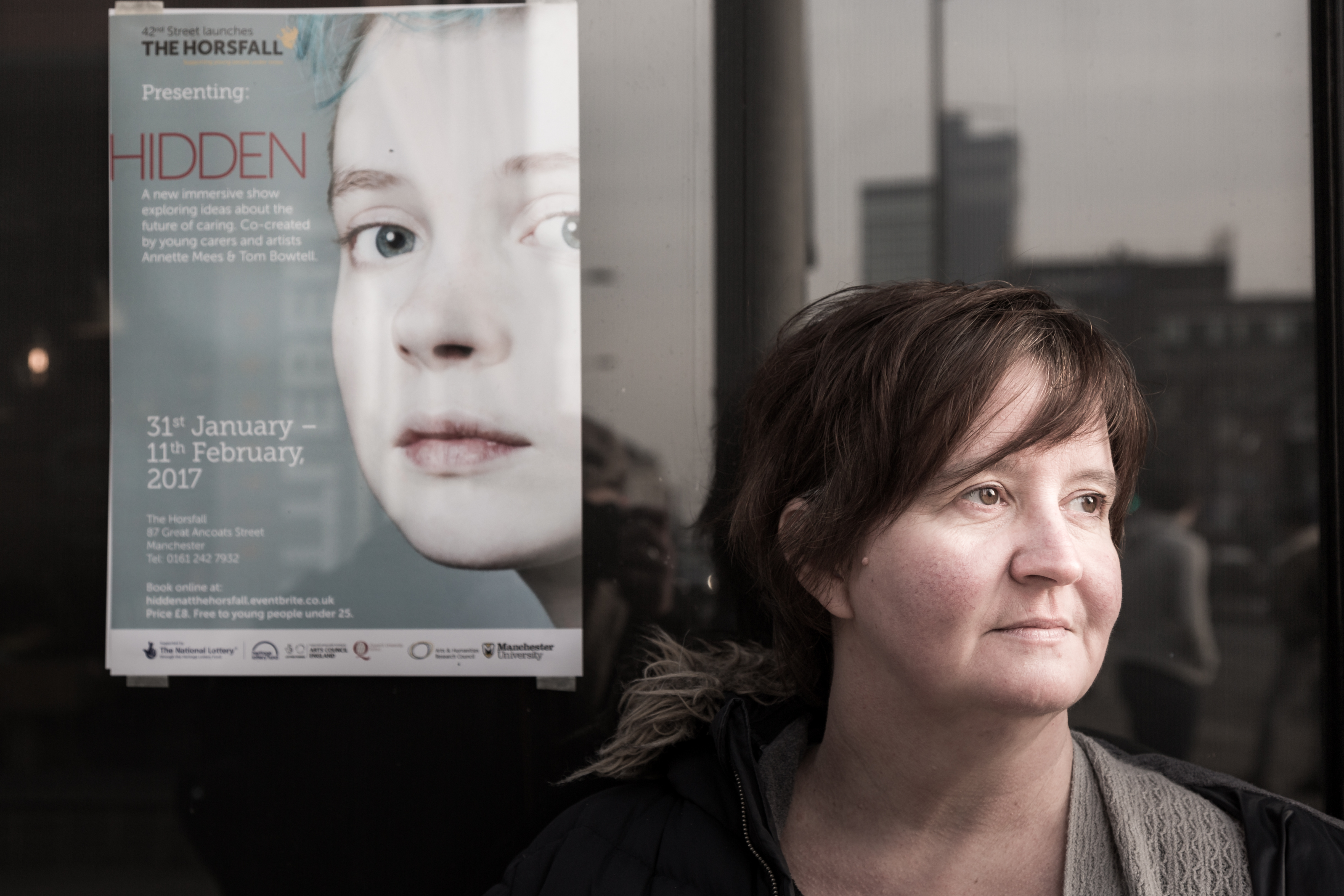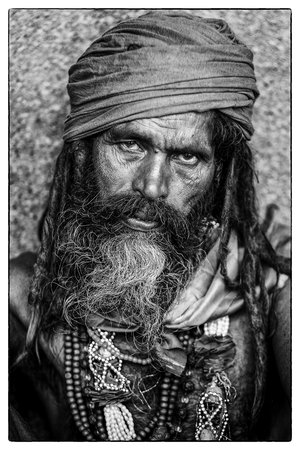I once set up a creative writing class at a youth centre. I went armed with Berol handwriting pens and my own teenage experience. Only two lads turned up. They laughed, teasing me and each other.
“I can’t write,” one said.
“Just write whatever you can see,” I suggested, and they did. The result was so astute, so funny. I told them so and they shrugged the compliment off like rain water. But they’d offered me a glimpse into their lives, both chaotic and tender, that they wouldn’t usually express.
There’s something about art that creates a safe space where we can explore the parts of ourselves we don’t always feel comfortable sharing.
So, when I heard about the opening of The Horsfall, a new creative programme from the team at Manchester’s 42nd Street (a place that supports young people aged 11-25 with their emotional wellbeing and mental health), I wanted to take a closer look at their work.
Inspiration has been taken from the Ancoats Art Museum; a social and artistic experiment established at the end of the 19th century. A recently renovated Victorian shop will act as the hub for a host of projects centred around improving mental health and wellbeing for young people and the wider community through engagement with art, nature and heritage.
Ancoats is not synonymous with the arts. But recently Manchester’s Northern Quarter has spread its tentacles across Great Ancoats Street. Once a no-go area famous for crime, canal geese and that big Toys R Us, Ancoats is experiencing yet another renaissance. Fancy pizzerias and artisan coffee shops are popping up, and the history of the area is piquing people’s interest.
 “There’s an amazing wealth of stuff here,” says Julie McCarthy, creative producer at 42nd Street. “From the birth of ice-cream in the North West to interesting social history in Victorian England.”
“There’s an amazing wealth of stuff here,” says Julie McCarthy, creative producer at 42nd Street. “From the birth of ice-cream in the North West to interesting social history in Victorian England.”
As a newcomer to Manchester some 13 years ago, I was warned to stay clear of anything beyond Ducie Street. But Victorian era Ancoats makes the early-noughties sound like Disneyland.
“You couldn’t see the sky because of the smog,” reflects McCarthy. “There was no grass and you never saw birds so it was a grim place to live. You were lucky to live to the age of 19.”
Enter Thomas Colgan Horsfall. A friend and disciple of art and social critic John Ruskin (who taught that art and nature could be useful as well as beautiful), Horsfall believed that art should be extended to the poorest members of the community. Whereas Ruskin thought nothing good – certainly not art or literature – could come out of Manchester, Horsfall persisted in attempting “to relieve the miserable dullness of the working poor” because he believed he could make a difference.
“He wasn’t agitating politically,” says McCarthy. “But he was a pioneer in terms of arts and mental wellbeing before the term was even coined.”
So how did McCarthy come across this relatively unknown story? Like all modern researchers, she Googled.
“At the time, I was just thinking about what creative work we could do at 42nd street. I googled quite early on and then it just snowballed from there.”
McCarthy laughs when she says this, but as we take a tour around The Horsfall building – where set-up and rehearsals are taking place simultaneously – it’s apparent that serious hard graft has been put into this project. “I contacted a man called Stuart Eagles who’d written about Horsfall. We met up and he just enthused me.”
Horsfall felt that the “greatest potential art possessed for engendering social progress and spiritual enlightenment rested with the young”. McCarthy concurs. “It’s an easy thing to understand why we would work with that story. It’s a great parallel with local history.”
But does McCarthy believe that there is less stigma surrounding mental health? “People are starting to talk about it,” she says.
While this is true – newspapers, blogs, twitter campaigns like Mind’s Take off the Tape and, more recently, MQ Mental Health’s We Swear, even primary schools are all discussing it – mental health issues are still often misunderstood. But it’s getting better and, thanks to places like 42nd Street, a dialogue is being created.
“We have a lot more referrals. Young people are more willing to talk about how they’re feeling and people are willing to help. We get referrals from young people, there’s a lot of word-of-mouth, but also parents, organisations and GPs.”
 All projects are co-productions between young people and artists.
All projects are co-productions between young people and artists.
“We want them to be able to create something fantastic,” McCarthy enthuses. “Because we feel they deserve to have the best experience.”
The first event on The Horsfall’s itinerary is Hidden, an immersive show exploring the future of care and whether it can be replaced with an automated system.
“We started with a piece of research that said it was really important to listen to young carers and see them as experts on the people they are caring for. This is something that is not generally done. The professionals want to dive in and help, which leaves the young person lost in the process.”
They’ve been working over several months with 50 young carers from Greater Manchester. Young carers don’t have a lot of spare time so the organisers often went to them. Some of the young carers became involved in the development of the show and appear in the production alongside a student actor and two professionals.
“The Horsfall has been transformed into a research institute and the audience are board members coming to do an inspection. It’s 45 mins long and only for eight people at a time.”
It’s a compact space but cosy, not cramped, and ideal for an interactive experience. Unable to sneak a peek at rehearsals, we head upstairs for a nosey and come across Tom Bowtell, the professional writer working alongside young carers to produce Hidden. As we take a few snaps, Bowtell and McCarthy talk shop. There’s a couple of props on the floor which we tip-toe around, and an air of nervous excitement permeates the room.
Hidden is just the first in an excellent line-up of ambitious events.
“After [the show] we have a sound installation which has been created by young people working with a local sound artist, and it’s all about the history of Ancoats. We’ll also have regular drop-in wellbeing cafes where people can take place in workshops, talk, chill out, and salon events centring around a theme.”
These events are, rather cleverly, called the Useful Beauty Salon, the premise of which is to learn “useful and beautiful things”.
Then there’s a project working in collaboration with a Wythenshawe housing association centred around dress and body image. Its origins lie in a tale from the end of the 19th century when a dress was fashioned by an all-male committee of the Ancoats Arts Association. Naturally, the ladies pointed out that it was unwearable, but from there the trail goes cold.
The benefits of creativity are widely known. From adult-colouring books to bullet journaling, painting to acting, it’s all good stuff for de-stressing. And the best thing about the team at The Horsfall? They don’t presume to have all the answers; rather, they choose to listen.
“We started with the premise that we know nothing about our young people, and they are experts in their own lives,” McCarthy concludes. “That’s how we work with all our young people.”
Images by Paul Husband
Hidden runs until February 11, 2017. For more information, click here











